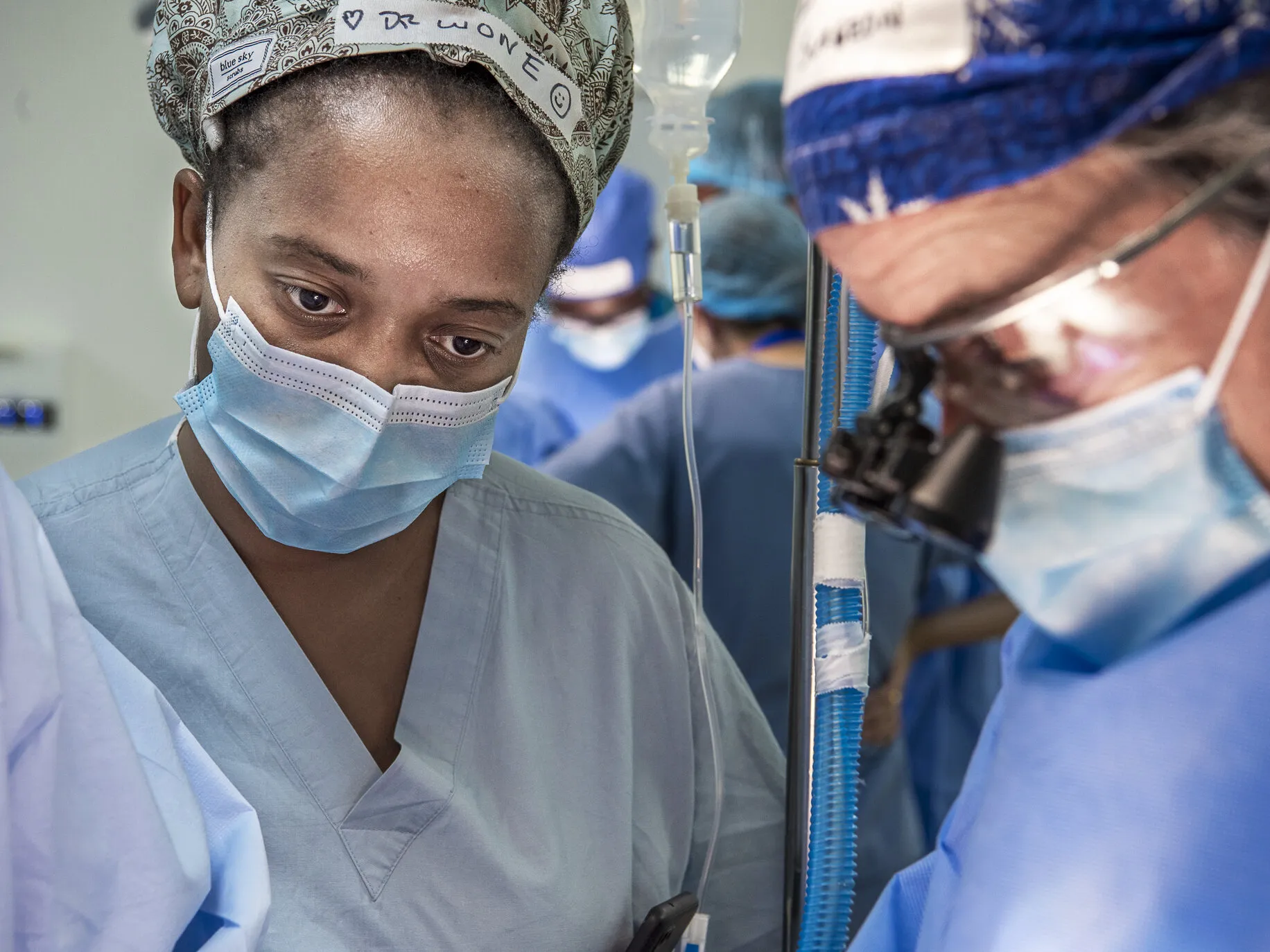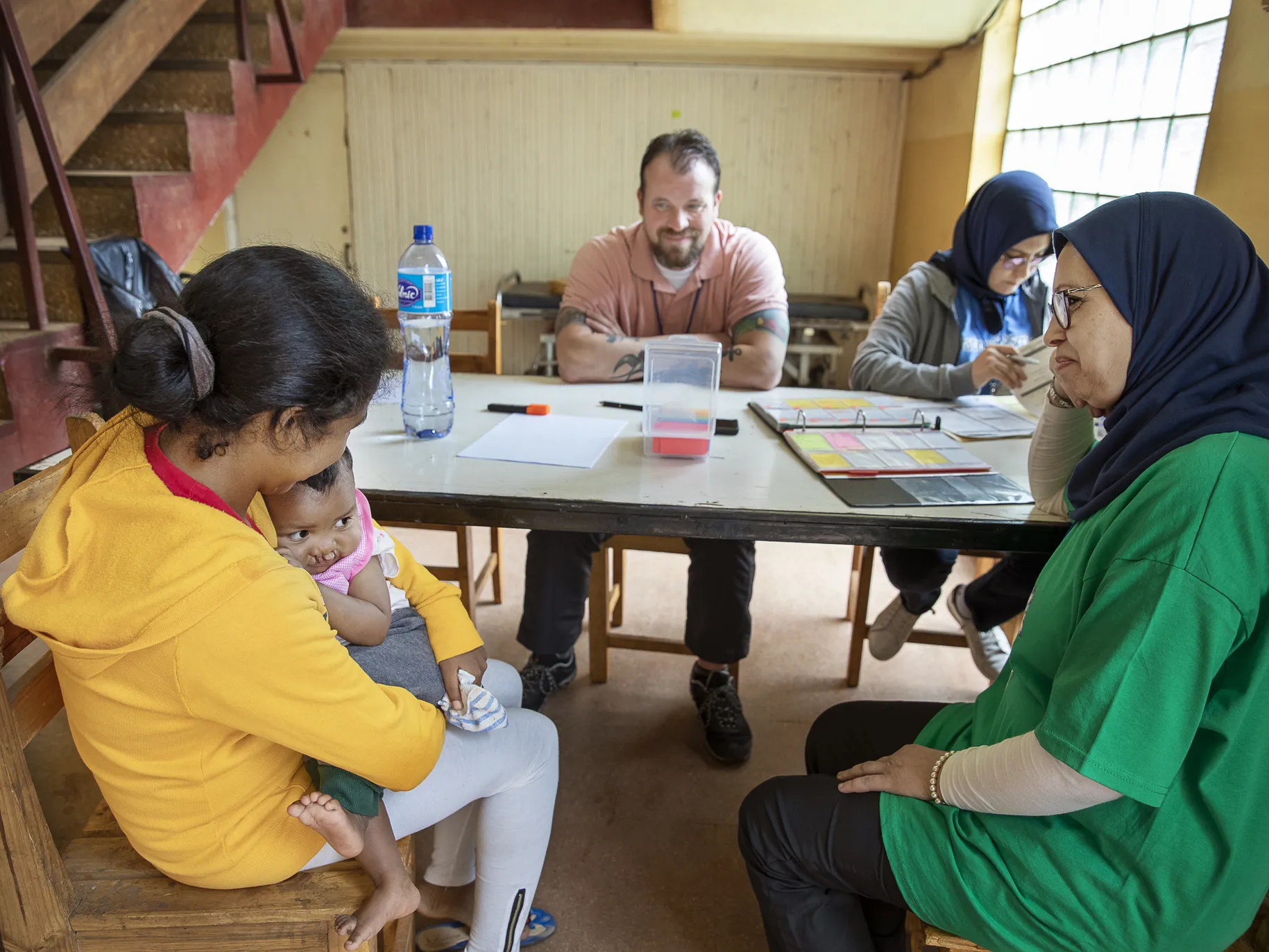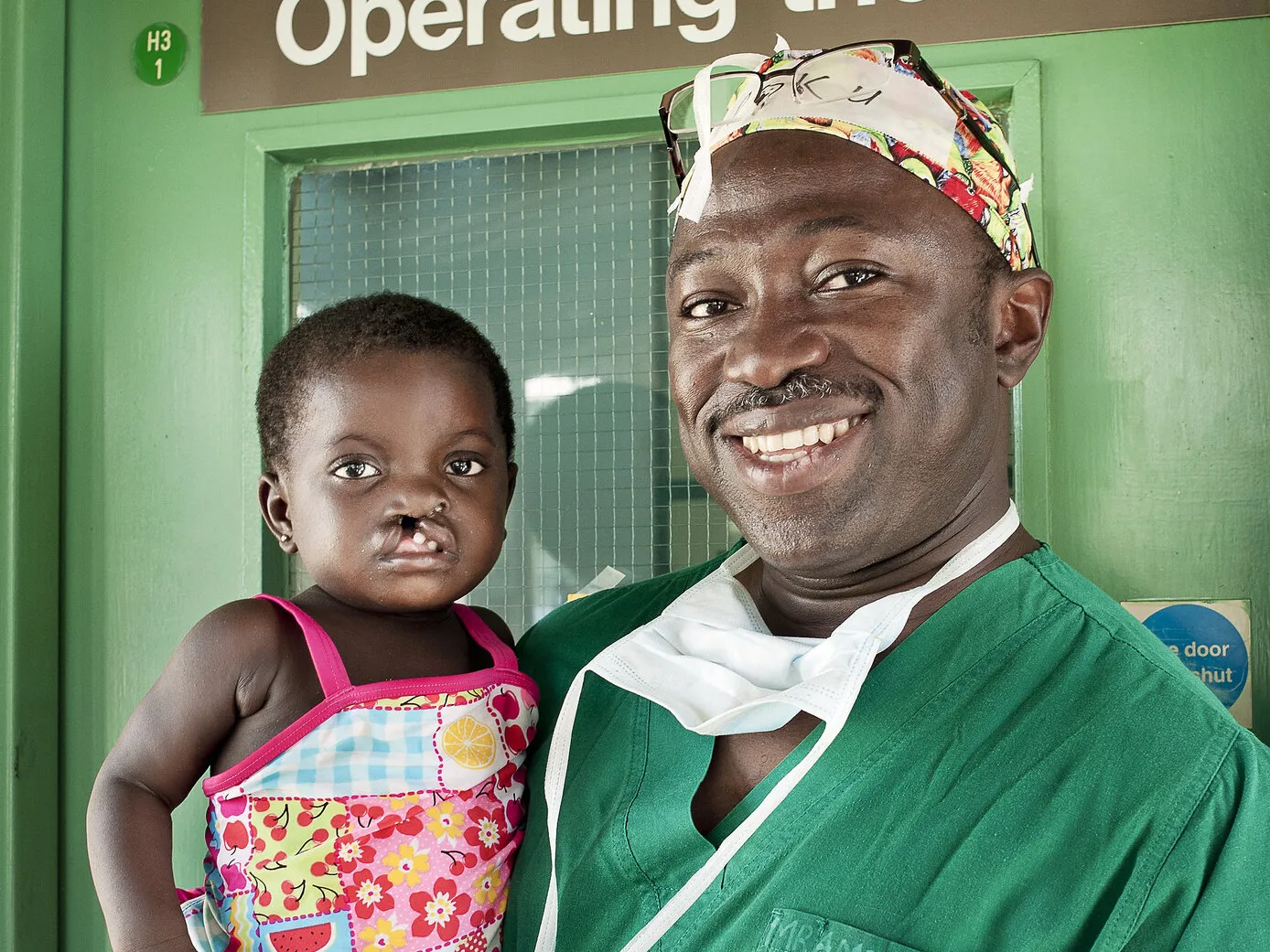Care Providers
The Motivation That Moves Her
A Q&A with Speech Pathologist Gloria Vilches

Operation Smile Honduras has provided free cleft surgery and care to Honduran children and families for more than 25 years.
Helping deliver this care is speech therapy and audiology coordinator Gloria Vilches. Driven by an inherent passion for service, Gloria carries her love of helping others into every session with her patients.
“Each child belongs to somebody – a mom, a dad, grandparents,” Gloria said. “And so, I think that if you understand the value of your family and your family supports you, then you can infuse that value onto the families that come to the center.”
With established care locations in six cities, including San Pedro Sula, Santa Rosa de Copan and Tegucigalpa, Operation Smile Honduras offers patients comprehensive services such as dental and orthodontic care, pediatric care, speech therapy, audiology and psychology consultations.
“I’m thankful to the fact that Operation Smile exists,” she said. “I might never see that final product, but just knowing that I was able to provide a little something for that patient to improve is gratitude enough.”
We caught up with Gloria to discuss her experience providing care in the midst of the COVID-19 pandemic. She also shared more about her passion for speech therapy and the impact her work has on Operation Smile patients before and after cleft surgery.

Q: As a speech therapist, how do you help children and families at Operation Smile?
A: “We normally work with children from the moment they’re born. We also work with the moms for the feeding aspect, teaching them how to use bottles, teaching them the correct positions for breastfeeding or bottle feeding. When necessary, we give the mothers special bottles to use with their babies that accommodate their cleft conditions. As the babies keep growing and go through their surgeries, we start introducing them to speech workshops, early language stimulation both individually and in groups.
“After their surgeries, we start working formally with the baby’s language abilities, their articulation, and just making sure that their surgeries are doing what they’re supposed to be doing and to determine if there is need for additional surgery. If the patients are having trouble with their language or speech, they will most likely need more surgeries. They will also need to keep working with us to achieve those language goals.”
Q: How are parents involved in the speech therapy process?
A: “Most of these children, their parents even, don’t feel comfortable with them attending school. A lot of these children don’t go to school, they don’t learn how to read and write, so it’s very important for the parents to feel confident in the training that we provide for them.
“Most of the training early on is with the parents. We work with the children, but it’s very important that the parents are present so that they can continue the work with their children at home. Once the child feels comfortable with the way they speak, then they are more outgoing, and they socialize a lot more. With that support, they flourish, and you can really see a difference once they start. They notice that they are talking better and that they’re talking more like their peers.”

Q: How often do you work with patients?
A: “On a daily basis, we work with these children at the center. Every day, they come in. We work with patients several times a month, but with the surgical programs, it’s a different story.
“Some of the parents aren’t able to travel very often to the center, so we want to make sure that during the surgical program, we’re able to provide them with some basic understanding of the need for language development with their children and even work some brief therapies with them. This is so that parents can continue working with their children until they are able to come back to the center and touch base.”
Q: How did the COVID-19 pandemic affect the care you were able to provide?
A: “During the pandemic, we were able to work virtually, so that was a blessing. Most of these parents have a phone, and most are able to contact us with WhatsApp. We were able to send them videos and training tutorials so they could do therapy at home.”
Q: Were there any patients who required special attention during the pandemic? If so, how did you handle those situations?
A: “Yes, there were a couple of children, especially those with hearing impairments. We were able to provide a little bit more help so that they can go to school. Just recently, we have been working with one of those patients. He’s 27 years old. He’s going to college, and he has been working very, very hard because he wants to be a professional.
“We also have other patients who have become volunteers at Operation Smile. That is the nice thing about them being able to feel the gratitude and the effort that they put in to be able to teach other people about what they can accomplish if they work hard. There are several patients who have become very successful because of the efforts they have to put in at the center.”

Q: What inspires your work in speech therapy and audiology?
A: “First of all, I’m thankful to the fact that Operation Smile exists to be able to provide this sort of care to Hondurans. It makes me feel very happy because I know it makes a difference. I think most parents are very grateful with what Operation Smile can provide. I might never see that final product, but just knowing that I was able to provide a little something for that person or that patient to improve himself or herself, at least for me, is gratitude enough.”
Q: What drew you to work for a nonprofit organization?
A: “I grew up in a family where service is a must. My father was a physician. I have a son who is also a physician. So, we grew up in this environment of realizing and knowing that if you can provide help to others, you can change the way a patient lives or the way they understand their condition. That’s the motor that moves me.
“Every single day, just knowing that there’s something that I have learned from my profession that I can provide to somebody else is special. I think we all need to find out what’s inside that we can give to others so that you can improve the life of someone else.
“I think that the support of family is important. Because sometimes, these long hours, long travels, you spend a lot of time invested in what you want to do and what you want to accomplish. I’m thankful to my family for supporting me. My daughter is even working for Operation Smile now. My three children came with me to surgical programs when they were little. They learned what it was that moved their mom to work with Operation Smile.”












